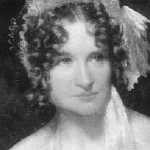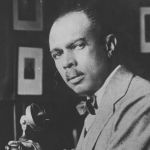From hunger I grew drowsy,
Dulled by my belly’s ache.
Then someone shouted in my ear,
Germany awake.
Then I saw many marching
Toward the Third Reich, they said.
Since I had naught to lose
I followed where they led.
And as I marched, there marched
Big Belly by my side.
When I shouted “Bread and jobs,”
“Bread and jobs” he cried.
The leader wore high boots,
I stumbled with wet feet
Yet all of us were marching
To the selfsame beat.
I wanted to march leftward,
Squads right, the order was.
I blindly followed orders
For better or for worse.
And toward some new Third Reich,
But scarcely knowing whither,
Pale and hungry men
And well-fed marched together.
They gave me a revolver
And said: now shoot our foe.
But as I fired on his ranks
I laid my brother low.
It was my brother, hunger
Made us one, I know,
And I am marching, marching
With my own and my brother’s foe.
So I have lost my brother,
I wove his winding sheet.
I know now by this victory
I wrought my own defeat.
Dulled by my belly’s ache.
Then someone shouted in my ear,
Germany awake.
Then I saw many marching
Toward the Third Reich, they said.
Since I had naught to lose
I followed where they led.
And as I marched, there marched
Big Belly by my side.
When I shouted “Bread and jobs,”
“Bread and jobs” he cried.
The leader wore high boots,
I stumbled with wet feet
Yet all of us were marching
To the selfsame beat.
I wanted to march leftward,
Squads right, the order was.
I blindly followed orders
For better or for worse.
And toward some new Third Reich,
But scarcely knowing whither,
Pale and hungry men
And well-fed marched together.
They gave me a revolver
And said: now shoot our foe.
But as I fired on his ranks
I laid my brother low.
It was my brother, hunger
Made us one, I know,
And I am marching, marching
With my own and my brother’s foe.
So I have lost my brother,
I wove his winding sheet.
I know now by this victory
I wrought my own defeat.
















Comment form: